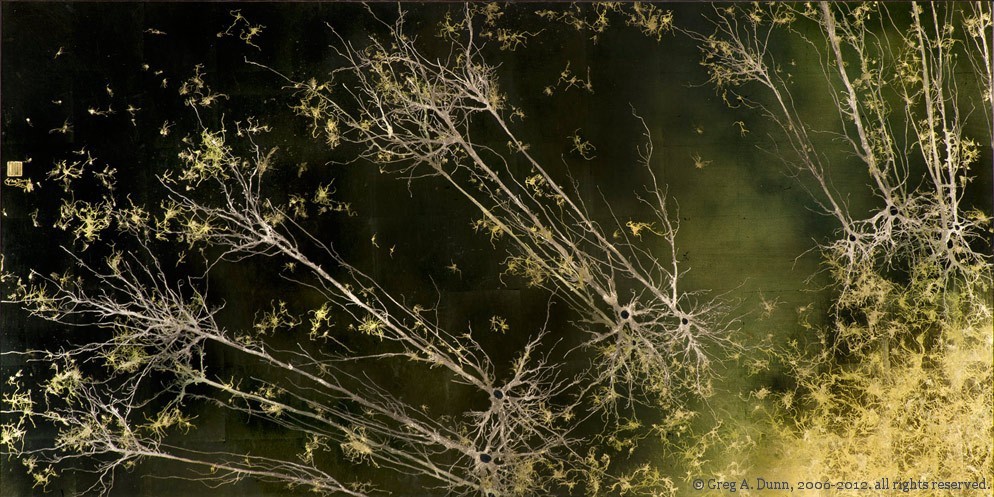The reason I love brain science is that it helps me take my ego out of the equation. Understanding how the brain works has helped me be much more honest with myself about my emotions and much more accepting of my limitations. Learning about the mechanisms and faculties that nature has endowed human beings with has also enabled me to see my struggles as part of the universal human condition.
Within all of us is an instinctual “ego” that weaves stories that create a sense of identity as a defense mechanism. The stories we tell ourselves enable us to create a sense of safety and security in a world full of uncertainty and risk, in a world where very little is actually within our direct control. However, at best these stories can only capture a limited view of reality for a limited amount of time and even when the stories no longer serve us — the ego can’t help but cling onto them like a child clings to a blankie or teddy bear.
These stories become hardwired as neural circuits in the brain that are automatically triggered whenever our ego feels threatened. These stories reinforce our ego but often create self-sabotaging results when we act on them. To defend our ego, we are willing to push people we care deeply about away. To protect our ego, we also push away parts of ourselves that don’t like “into the shadow.”
The shadow is simply where we store the memories and experiences we prefer to keep out of conscious awareness — experiences associated with shame, guilt, pain, anger, cruelty, weakness and vulnerability — and all the aspects of ourselves that we don’t want people to see or know about us, that even we don’t want to know about ourselves. The thing is, we all contain multitudes. By denying or repressing aspects of our complexity and multiplicity, we become fragmented and disconnected. Thus, when we feed our egos, we also feed and energize “our shadow.”
The shadow can be linked to sub-cortical brain structures that correspond to the subconscious mind, such as the amygdala, which plays a role in activating the fight-flight-freeze cascade when we are in danger. As the shadow gets stronger, it can easily hijack us by deactivating the frontal lobes, which house the “conscious mind,” where our capacity for higher thought processing, executive functioning, self-awareness, and self-understanding resides. The brain tends to dissociate whenever the ego feels threatened. The bigger the threat, the more the shadow hijacks the mind, the more impaired and dissociated our brain becomes, the more disconnected and anxious we feel. For people like me who have experienced extreme trauma, dissociation can make it very hard to function and live a fulfilling life.

The good news is that the brain can change and heal. We can rewire and reintegrate our brain. To do this, we have to learn how to watch the ego’s defense mechanisms get triggered and calm them down rather than act on them. One of the most effective ways to do this is by regularly practicing meditations that strengthen the circuits for executive functioning, self-awareness, and compassion. The more we exercise and strengthen these “higher neural circuits,” the greater our ability to bring light into our shadow — this means strengthening the pathways connecting the higher brain to the sub-cortical structures that correspond to the shadow.
Reintegrating my brain using meditation and other mind-hacking techniques I developed has allowed me to break free from the stories and defense mechanisms created by my ego. In particular, in the practice of mindfulness, I create space and awareness to fully and compassionately accept all of my experiences so I stop mindlessly feeding my shadow. Eventually, this enabled me to re-integrate my brain so it no longer dissociates. Practicing self-compassion also strengthened the vagus nerve connecting my brain and heart, and as a result, I am much more tuned-in to my feelings.
I have slowly come to see this integration of brain and heart as the physiological manifestation of inner peace. I can now watch my ego spin and weave stories without taking this internal chatter seriously. As a result, I do less and less self-sabotage and am less likely to give into urges to knock other people down and feed their shadows. Instead, I seem to naturally create a space around me where other also feel more integrated and whole. This is a gift worth sharing.
About the author:
Due Quach (“Zway Kwok”) is an author, mindful leadership expert, mind-hacker, and social entrepreneur. A refugee from Vietnam who grew up in inner city Philadelphia, Due overcame the long-term effects of poverty and trauma by turning to neuroscience and developing “mind hacking” techniques. These techniques enabled her to graduate from Harvard College and the Wharton MBA Program, build a successful career in management consulting and private equity investments, and now build pioneering social ventures to help people overcome adversity.
Due is the CEO and founder of Calm Clarity, a social enterprise that combines science and mindfulness to help people across the socioeconomic spectrum master their minds and be their best selves. She is also a co-founder of the Collective Success Network, a new nonprofit to increase college success by building a platform for professionals to support, mentor and empower college students from disadvantaged backgrounds.
Due’s inspiring story has been featured in the Philadelphia Inquirer, Philly Voice, and the New York Observer. Her forthcoming book, “Finding Calm Clarity,” will be published by Tarcher Perigee Penguin Random House in 2018.
Originally published at medium.com


